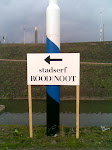Whilst his mother's womb contained the growing Baal
Even then the sky was waiting quiet and pale
Naked, young, immensely marvellous
Like Baal loved it, when he came to us
That same sky remained with him in joy and care
Even when Baal slept peaceful and unaware
At night a lilac sky, a drunken Baal
Turning pious as the sky grows pale
So through hospital, cathedral, whiskey bar
Baal kept moving onwards and just let things go
When Baal's tired, boys, Baal cannot fall far
He will have his sky down there below
When the sinners congregate in shame together
Baal lay naked, revelling in their distress
Only sky, a sky that will go on forever
Formed a blanket for his nakedness
And that lusty girl, the world, who'll laughing yield
To the men who'll stand the pressure of her thighs
Sometimes gave him love-bites, such as can't be healed
Baal survived it, he just used his eyes
And when Baal saw lots of corpses scattered round
He felt twice the thrill, despite the lack of room
"Space enough" said Baal, "then I'll thicken the ground
Space enough within this woman's womb"
Any vice for Baal has got its useful side
It's the man who practices it, he can't abide
Vices have their point, once you see it as such
Stick to two for one will be too much
Slackness, softness are the sort of things to shun
Nothing could be harder than the quest for fun
Lots of strength is needed and experience too
Swollen bellies can embarrass you
Under gloomy stars and this poor veil of tears
Baal will graze a pasture till it disappears
Once it's been digested to the forest's teeth
Baal trod singing for a well earned sleep
Baal can spot the vultures in the stormy sky
As they wait up there to see if Baal will die
Sometimes Baal pretends he's dead, but vultures swoop
Baal in silence dines on vulture-soup
When the dark womb drags him down to its prize
What's the world still mean to Baal, he's overfed
So much sky is lurking still behind his eyes
He'll just have enough sky when he's dead
Once the Earth's dark womb engulfed the rotting Baal
Even then the sky was up there, quiet and pale
Naked, young, immensely marvellous
Like Baal loved it when he lived with us



.jpg)

